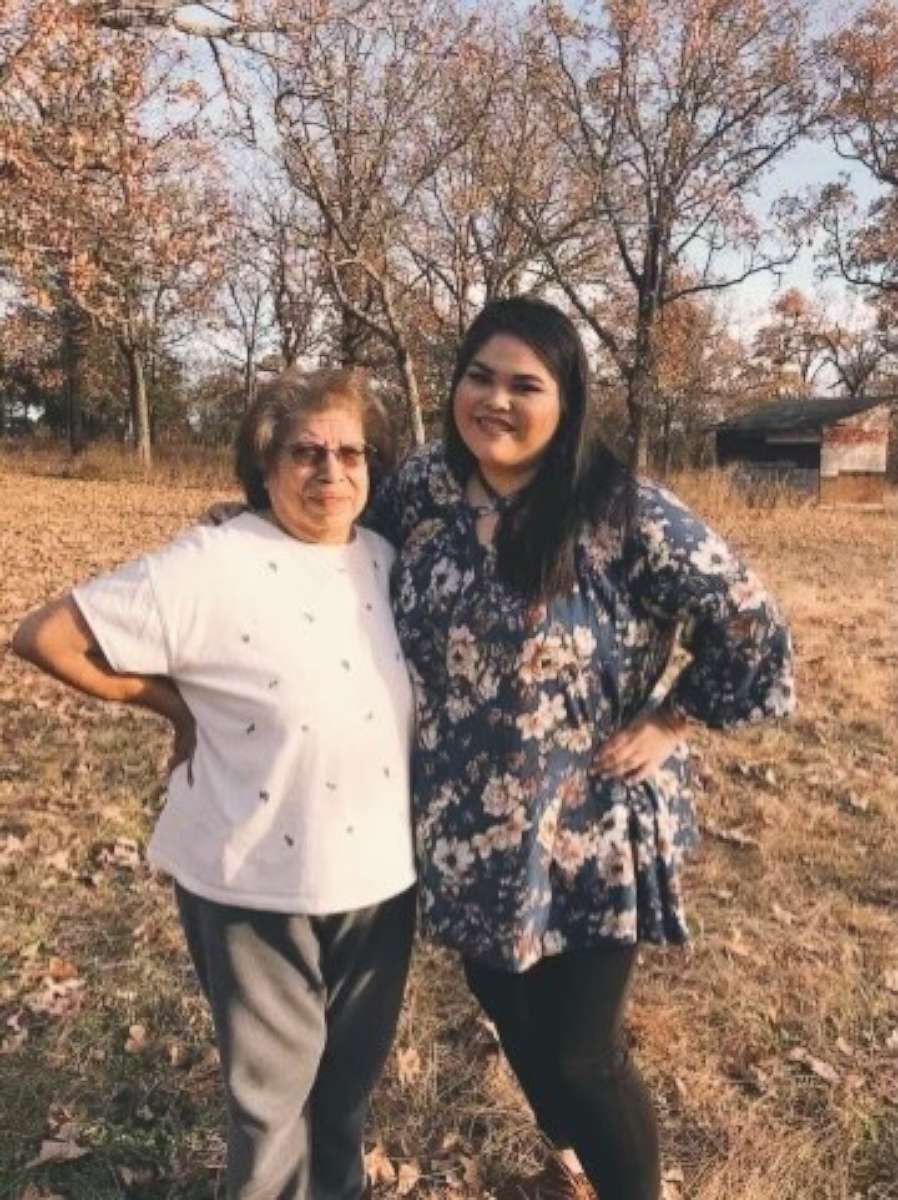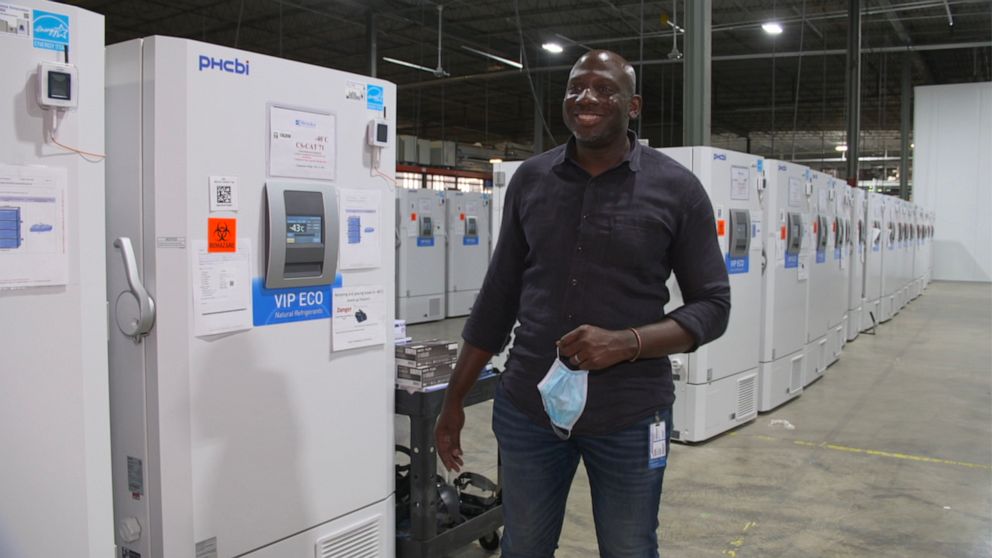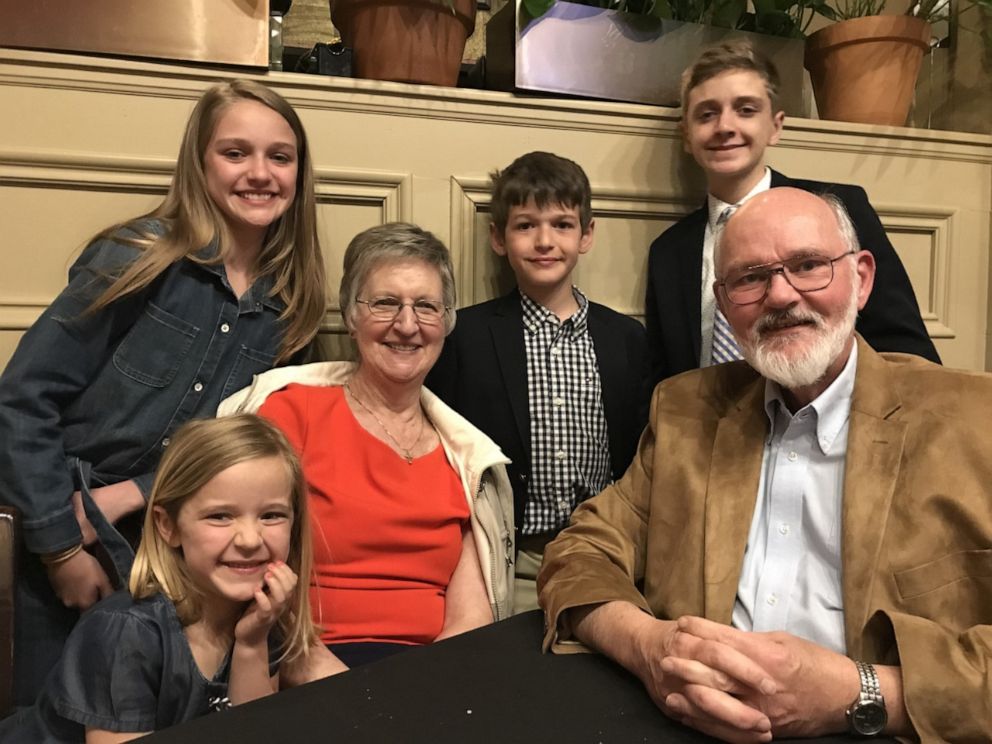As Moderna nears 200 millionth dose, workers celebrate personal milestones too
Employees of Catalent, a manufacturer in Indiana, take pride in their work.
Moderna is on the cusp of delivering the 200 millionth dose of its COVID-19 vaccine. Tiera May works at the facility in the small college town of Bloomington, Indiana, finalizing the batch.
"The vaccine that my grandma received came from our facility," said May, associate project coordinator at the facility, owned by pharmaceutical manufacturing company Catalent. May is Native American, from the Cherokee tribe, and she's spent the better part of a year working on Moderna's vaccine. "We were putting out something that was going directly to my grandma and not only that, but it was preserving our heritage and preserving our identity."
May's grandmother is one of the very few Cherokee language speakers in her community, after losing several others who spoke the language to the virus.
"Our tribe has been fighting to protect their identity since 1830," she added. "Our people just carry a lot of different risk factors when it comes to COVID specifically."
One in every 390 Indigenous Americans has died from COVID-19, according to data from APM Research Lab's Color of Coronavirus project. Compared to one in every 555 Black Americans; one in 665 white Americans; and one in 680 Latino Americans, Indigenous Americans are the hardest hit minority community in the country.
Nevertheless, May said her community shares something with many other Americans: vaccine hesitancy.
"They were afraid at the beginning because you just never know when our culture is represented in these clinical trials and things," said May. "I knew that I had to kind of take point. I was able to kind of assure them and encourage them to trust science and to trust the process and to give it a shot."

Her grandmother, both over 65 and Native American, was one of the first eligible for the Moderna shot.
"To see her smile without a mask on, that was priceless," said May, 27. "This was the first time that I felt like I could protect my family ... that I was doing something to help keep them safe."
May is one of the over 3,000 employees at Catalent's Bloomington facility. The facility is roughly the size of 21 football fields, and since the start of the pandemic has been running 24/7. ABC News was the first to get an inside look at this facility in nearly a year.
"I think the hardest part was that I would have to tell my team, 'Hey, we're trying to save the world,'" said Brandon Williams, the packaging value stream manager at Catalent. "Every vaccine counts because each one, of course, represents someone who is safe from the virus."
Williams and his team are part of the final steps of the manufacturing process; they keep the vaccines at a temperature of negative 40 degrees. He said it was a challenge in the beginning for him and his team to learn how to operate the "freezer farm," as he calls it.
"Initially, when we were doing it, we had less freezers, less experience, but that wasn't anything that we couldn't resolve," Williams said, standing next to a row of specially designed freezers. "We knew each time we were bringing boxes downstairs, it was like we knew how many more people were going to be able to survive this pandemic."

Like May, Williams knows his family received shots of Moderna that were made in his facility.
"We got a little bit more comfortable going back to church," said Williams. "I know that's not just my family, other families are doing the same. It was truly a blessing to be able to do that."
Some within Williams' personal circle had reservations about the vaccine, but much like May, he was able to share a unique perspective.
"It was something we shared with our families because we were like, 'Hey, we are working with Moderna and it has been approved!'" he said, recalling the day the Food and Drug Administration authorized Moderna's vaccine for emergency use. "You can feel comfortable going out and getting that shot, you can be safe and get back to America as normal -- the world as normal.'"
Once Catalent ships off Moderna's 200 millionth dose, the company will have potentially vaccinated about a third of Americans -- a feat not lost on its employees.

"When my parents were vaccinated, both of them received the Moderna and it was most certainly manufactured here in Bloomington," said Alyson Norrick, head of project management and a mother of four. "The first hugs with the grandparents -- I'm not a very emotional person -- but that was an emotional moment after a year of not being able to have close contact. ... To be able to do that was incredible."
Catalent's Bloomington facility will continue manufacturing Moderna's vaccine, as well as Johnson & Johnson's shot. Catalent is currently supporting over 80 different COVID-19-related vaccines and treatments, including several priority government-supported programs.
"When I see people post things online about how they received their first vaccine or their dose, or they share pictures of how they're reunited after a long period of time of separation, it just is like the icing on the cake," May said.




